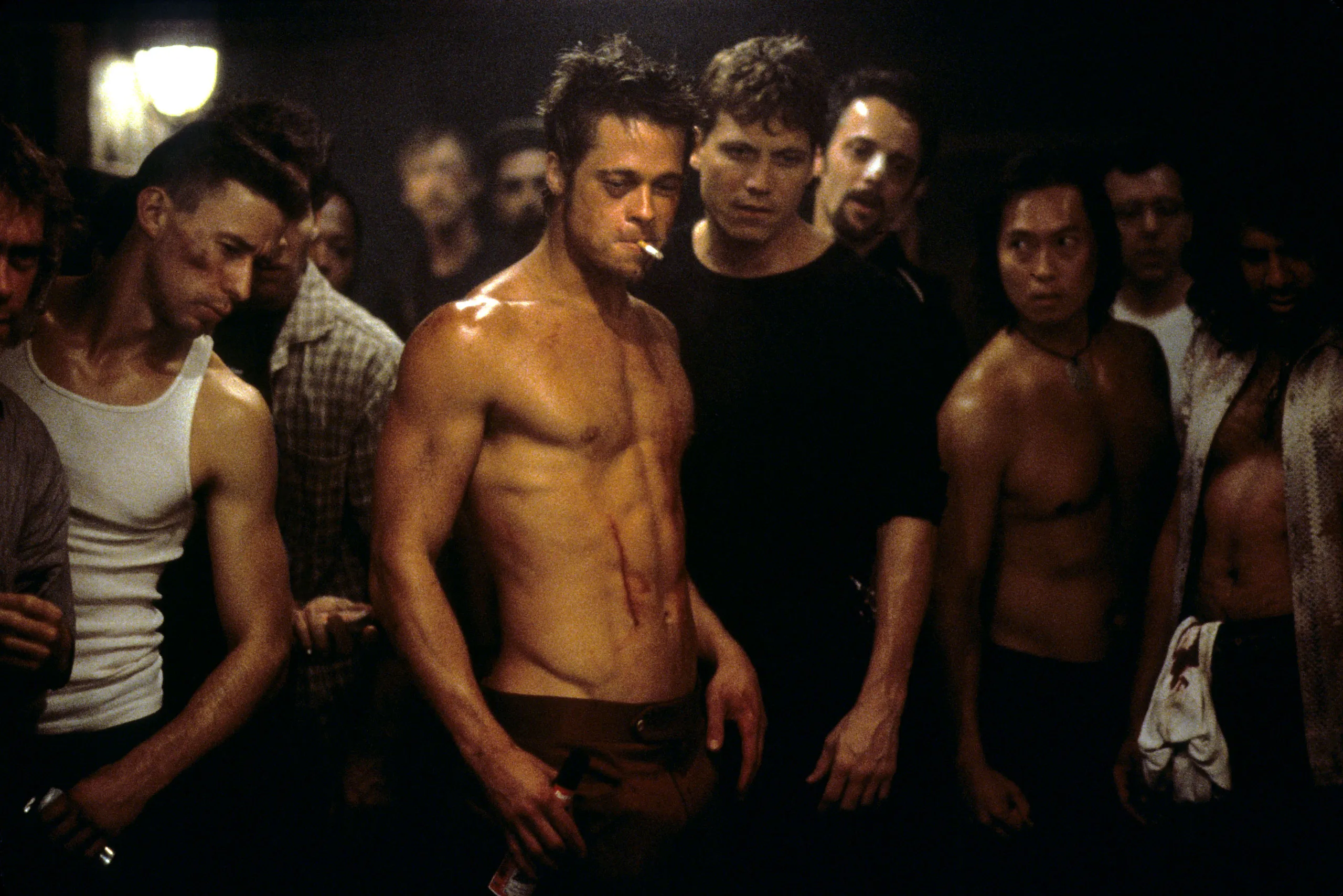Fight Club (1999), a psychological drama based on Chuck Palahniuk’s 1996 novel, is a film that critiques modern society through themes of identity, masculinity, and consumer culture.
The story follows an unnamed narrator (Edward Norton), a white-collar worker who feels trapped in a monotonous corporate job and is emotionally empty. To cope with his depression, he begins attending 12-step meetings for illnesses he doesn’t have. Ironically, he finds personal relief in the suffering of others, gaining a sense of connection through their vulnerabilities.
Later in the film, he meets Tyler Durden (Brad Pitt) on a flight—a soap salesman who embodies everything the narrator wishes he could be: confident, rebellious, and free from societal expectations. When the narrator’s high-rise apartment mysteriously burns down, he turns to Tyler for help and ends up joining a secret underground group where dudes gather to fight each other as a way to confront their personal insecurities and emotional emptiness.
Tyler believes that true freedom comes from letting go of fear, embracing pain, and risking death. The fights become a ritual through which the members free themselves from the constraints of modern life and rediscover a raw, primal version of themselves. The narrator—and others like him—begin to truly feel alive when they participate in Fight Club.
The relationship between the narrator and Tyler represents a psychological conflict: Tyler embodies unfiltered instinct and chaos, while the narrator clings to order and control. Their differing philosophies represent an inner battle people may face when conforming to societal norms at the expense of individuality. The film suggests that modern, consumer-driven life suppresses personal identity and forces people into predefined societal roles—and that this suppression eventually leads to the collapse of one’s true self.
Fight Club (1999) tells a story about self-destruction versus self-discovery. While the film’s hyper-masculine approach presents exaggerated examples that shouldn’t be replicated in real life, it reflects a theme centered on the importance of finding personal identity. The film argues that personal fulfillment doesn’t come from destroying the world around us, but from confronting our inner selves and finding our identity.
Fight Club (1999) Awards:
Academy Awards (72nd Oscars) – 1 Nomination, 0 Wins
- Nominated: Best Sound Effects Editing – Ren Klyce & Richard Hymns
Golden Globes (57th Golden Globes) – 0 Nominations
British Academy Film Awards (53rd BAFTAs) – 0 Nominations


